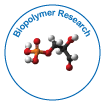开放获取期刊获得更多读者和引用
700 种期刊 和 15,000,000 名读者 每份期刊 获得 25,000 多名读者
抽象的
The Effectiveness of VEGF Signalling Pathway Inhibitors on the Kidney and Their Immunoregulation Mechanism
Betty Andrews
Pathophysiologic processes that are closely related are angiogenesis and immunosuppression. VEGF signaling pathway inhibitors, which are frequently prescribed for proliferative retinal lesions and malignant tumors, can induce hypertension and renal damage in certain patients. These patients may present with proteinuria, nephrotic syndrome, renal failure, and thrombotic microangiopathy. VEGF-A and VEGF-C are both inhibited by VEGF signaling pathway inhibitors. Nonetheless, glomerular endothelial cells’ and podocytes’ physiological function depends on the VEGF-A and VEGF-C that podocytes produce. For kidney disease linked to inhibitors of the VEGF signaling pathway, there is currently no proven treatment, and some patients continue to experience progressive renal failure even after stopping their medication. According to recent research, VEGF-A and VEGF-C blocking can increase cytotoxicity of CD4 + and CD8 + T cells, strengthen dendritic cells’ ability to present antigens, and activate CD4 + and CD8+ T cells.

 English
English  Spanish
Spanish  Russian
Russian  German
German  French
French  Japanese
Japanese  Portuguese
Portuguese  Hindi
Hindi